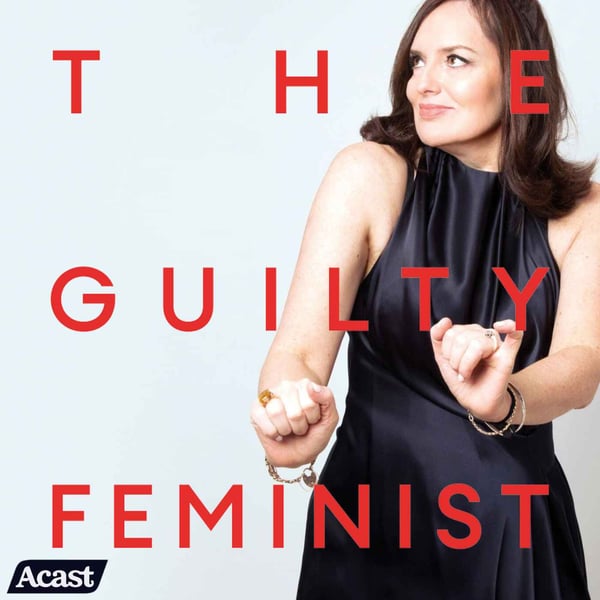Media Storm presents - Mina Smallman on misogynoir, survival and a better tomorrow
The Guilty Feminist
The Spontaneity Shop
4.8 • 12.2K Ratings
🗓️ 14 August 2024
⏱️ 36 minutes
🧾️ Download transcript
Summary
MINA SMALLMAN: ON MISOGYNOIR, SURVIVAL AND A BETTER TOMORROW
“Race is always seen as Black men's issue, gender is always seen as white women's issue. So Black women always fall through the cracks.”
Preferential acceptance rates for White women applying to UK police forces have given a false impression of gender equality, hiding acute discrimination against Black women, Media Storm data shows. This reveals the importance of understanding intersectional discrimination - and one version in particular. ‘Misogynoir’: the ingrained prejudice against Black women.
This episode heroes Black women speaking about the particular prejudices they face. In a long-form interview, Mina Smallman - teacher, pastor and mother of Bibaa Henry and Nicole Smallman, whose murders exposed racist police neglect and abuse - shares the pain, passion and learnings that went into her new book, A Better Tomorrow: Life Lessons in Hope and Strength.
The episode is hosted by Mathilda Mallinson (@mathildamall) and Helena Wadia (@helenawadia). The music is by Safire (@soundofsamfire).
Resources:
- Order Mina Smallman’s book, A Better Tomorrow https://www.penguin.co.uk/books/451970/a-better-tomorrow-by-smallman-mina/9781529199710
- Request Media Storm’s policing data from [email protected]
- Support Media Storm on Patreon https://www.patreon.com/MediaStormPodcast
You can also get an ad-free version of the podcast via Apple Podcasts or Acast+ https://plus.acast.com/s/guiltyfeminist.
Hosted on Acast. See acast.com/privacy for more information.
Transcript
Click on a timestamp to play from that location
| 0:00.0 | Hello Guilty feminist it's Helena and Matilda from Media Storm the guilty Feminist Friends that sometimes bring you special |
| 0:15.4 | episodes like this one. A few weeks ago on Media Storm I talked about misogyny and |
| 0:20.8 | mistrust in the Met Police with Cocaoa Khan, Dr. Leila Hissain and Patsy-Stevenson. |
| 0:26.0 | Last year we dug into this, finding evidence of racist discrimination in police recruitment, |
| 0:32.4 | with the process of elimination for ethnic minority applicants hoping to change the force from the inside. |
| 0:39.0 | But after Media Storm released its investigation, we were contacted by a group of black female police officers who said the situation would be even worse if we looked at it at an intersectional level. |
| 0:52.0 | In other words, if we paired race with gender. |
| 0:55.0 | Court on camera, a rare opportunity for black women in policing to come together. |
| 1:02.0 | Marcia Orr and Karen Gedies were organizing a nationwide policing conference by and for black women. |
| 1:10.0 | Because this had never been done, nor had any research been done to prove that they were dealing |
| 1:15.0 | with layers upon layers of targeted discrimination, but they had experienced it, so they knew |
| 1:20.7 | it was there. |
| 1:21.7 | They asked us to find the numbers on gender and race together. |
| 1:26.1 | Months of research later, we had the proof they needed. |
| 1:31.5 | One in five white women who applied got in. Only one in 14 black women did and the |
| 1:38.3 | higher up you get the worse it looks. In the 189 years of Metropolitan Police service existing, there has only been one |
| 1:46.5 | woman of color who has actually achieved the rank of Chief Superintendent. |
| 1:50.8 | Black women were less likely than women of any other |
| 1:53.4 | ethnic minority to get in. They were less likely than black men to get in, |
| 1:57.7 | and there are no diversity and inclusion pathways that |
| 2:00.5 | acknowledge the particular discrimination they face. |
| 2:05.0 | So today we'll hear from black women about their specific experiences of |
... |
Please login to see the full transcript.
Disclaimer: The podcast and artwork embedded on this page are from The Spontaneity Shop, and are the property of its owner and not affiliated with or endorsed by Tapesearch.
Generated transcripts are the property of The Spontaneity Shop and are distributed freely under the Fair Use doctrine. Transcripts generated by Tapesearch are not guaranteed to be accurate.
Copyright © Tapesearch 2025.

